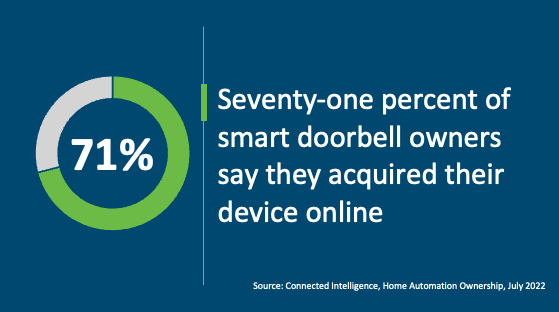
Roku Gets Into Smart Home
Last week, Roku announced the expansion of its home entertainment ambitions, releasing a full line up of smart home devices meant to be connected and controlled via TV. The line will sell exclusively at Walmart and comes by way of a partnership with Wyze; product categories include smart lighting, smart plug, a smart doorbell and a variety of security cameras. At the time of publication, full pricing for the line is not known, however Roku did reveal the security camera line up will start at $27. The products will be available on October 17.
The NPD Take:
- With millions of TVs and streaming devices in consumer homes, Roku is one of the most widely adopted connected platforms in media. Adding home automation products to the device portfolio will increase engagement with Roku’s services and challenge industry incumbents for market share.
- Roku’s association with Wyze and Walmart suggests the product line up will focus on affordability which will help drive adoption of the devices. There is no word yet on Matter compatibility.
Samsung Leverages Blockchain for Security
Many owners of home automation devices have concerns about the security of their products, and Samsung has a solution. Last week at Samsung’s Developer Conference, the company unveiled Knox Matrix, a novel application of private blockchain technology to secure connected devices. Knox Matrix-supporting devices, such as smartphones, TVs, and security cameras, form a trust chain network which keeps the devices up to date on software updates and monitors each device on the network for malware. If a security breech is detected, Knox Matrix will cut out the compromised device. Knox Matrix-supporting devices from Samsung will be available in 2023 with third party brands utilizing the technology later.
The NPD Take:
- Privacy continues to be a major concern among smart home device owners and Samsung’s solution is a strong effort at ensuring compromised devices do not compromise the home network.
- While it is unclear how successful a private blockchain will be in keeping networks safe, this is likely only the beginning of formal programs from manufacturers to secure connected devices. Thirteen percent (13%) of non-smart home owners say a lack of trust in device security is the number one reason why they are not interested in the category.